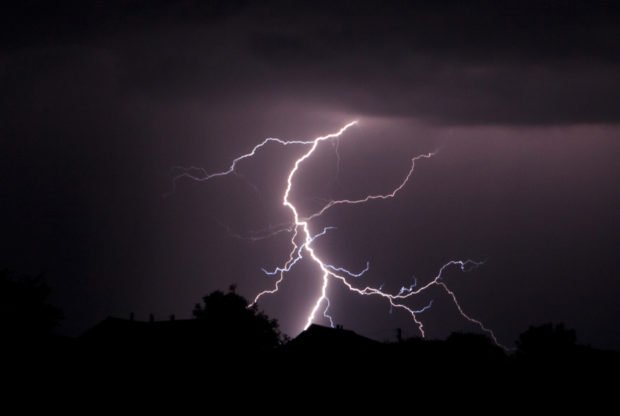
CEBU CITY, Philippines – In the Philippines, thunderstorms can occur at any time of the day all year round. So it is better to be prepared by the sudden change in weather.
The country is prone to all kinds of natural disasters like thunderstorms due to its physical environment and geographical location.
Defined as a violent local atmospheric disturbance, this weather phenomenon comes with various hazards including heavy rains, strong winds, thunder, and lightning strike.
In the event of intense thunderstorms, a tornado or hailstorm can also form, bringing even more devastating damages.
READ:
Lightning strike kills 3 in Bulacan
Lightning strike kills 2 soldiers as rains hit Cordillera amid El Niño
Lightning kills fisherman, who went spearfishing in Badian, Cebu
Lightning, the most spectacular element of a thunderstorm, causes thunder which can be heard shortly after it.
Incidents wherein objects or even humans are struck by lightning is not uncommon in the Philippines.
Jhomer Eclarino, weather specialist at the Philippine Atmospheric, Geophysical and Astronomical Services Administration stationed (Pagasa) in Mactan, said that there have been several recorded fatalities in the country due to lightning.
One of most recent incidents of a lightning strike involved a teen and two children who were found dead after being struck by lightning in Barangay Inaon in Bulacan.
When lightning strikes objects, the electrical discharge creates a spark that causes it to erupt into flames.
In Clarin town in Bohol, homeowners had to move quickly to put out the fire that gobbled up their home after it was struck by lightning last July 1.
Indeed, lightning is just as destructive as it is fascinating to see.
“Ang lightning strike, alam natin na delikado na siya and taas ang kanyang energy. Kanang electrical discharge is taas ang temperature and kanang bultahe,” stated Eclarino.
To avoid the dangers of lightnings, the weather bureau advised the public to implement the necessary safety precautions, especially when they receive advisories from the weather bureau.
The following are the measures that individuals must take to avoid being a victim of a lightning strike, according to Eclarino:
- Find immediate shelter. Seek enclosed safe areas as soon as possible to avoid lighting strikes.
- If you are outdoors, stay away from tall and isolated objects such as trees, flagpoles, and telephone poles.
- Stay away from anything that could conduct electricity like water, water pipes, electronic gadgets, cellphones, and plug-in electrical appliances.
Eclarino explained that it’s best to steer clear of areas surrounded by or near a body of water as it is the best conductor of electricity.
While inside the house could be one of the safest shelters, it can still be a affected by a sudden lightning strike.
Eclarino said that the best way to prevent this from happening is to turn off the main switch breaker.
“If naa ta sa balay, we have to turn off our main switch breaker. Because diha man magflow ang electricity or the energy coming from the lightning,” he stated.
In addition, mirrors must be covered with a cloth as thunder can cause them to break and injure the occupants of the house.
Eclarino emphasized that watching television should be avoided during a thunderstorm as the electricity can pass from the antenna to the television itself.
Residents should also plug off all of their appliances and refrain from using their mobile phones for their own safety.
While more lightnings are found to occur during the summer instead of the rainy season, the public is reminded not be complacent.
“So dili na man siya unusual. But thunderstorms can happen anytime of the day, also of the year. Possibly naa tay mga thunderstorms. And ang ato lang mabuhat to mitigate this is we have to take precautionary measures para ma-lessen or zero ang casualty in the hazards of a lighting strike,” stated Eclarino.

